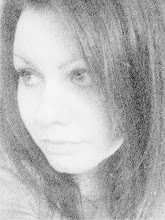Clichés are probably clichés because they serve some kind of purpose. There's some kind of essence in there that speaks to mankind. Well, they're all really basic things, about really basic things, most of them, while others are about heartbreaking things. Perhaps it's as simple as some of them are used because we can't think of anything else to say, like an automated reply. They somehow protect us from what's really going on or buy us some time to figure it out.
Personally I'm tempted to reply to all clichés with "Elaborate and exemplify", but I have a feeling that'd annoy people.
There's a dissertation from Umeå universitet called Fega pojkar pussar aldrig vackra flickor, Könsrelaterade ordspråk i nordnorrländsk agrarmiljö belysta ur språkligt och kulturellt perspektiv by Daniel Andersson. (Couldn't think of a longer title could you, Daniel, hm?) I haven't read it but the title translates to Cowardly boys never kiss beautiful girls, gender related proverbs in northern Norrland's rural farmer environment from a linguistic and cultural perspective. The idea is that the proverbs are memories, on how to behave in certain situations, and which actions are the better, it also points out which qualities are typically male or female. I'd like to read it, but it'd probably anger me.
In part this is what I mean, that as long as we use these expressions they remain true. Language effects our way of thinking. I don't completely agree with Julia Kristeva when she means that language is a male tool and that women are capitives in it, not sure why I don't really, maybe it just implies that men and women never communicate. I'm seeing this from a female perspective, obviously, I don't know if my language is male or female per se, and also according to Kristeva females have an area that's not accessible to men, a set of rules and behaviours men can't understand, while as women are way more familiar with how men act and think, because of the power perspective. The oppressed know more about the oppressor than the other way around, and with not being a man I will never fully understand this.
As far as miscommunication goes I can see that there's an issue, but I'd like it to be more about a person than a gender. I can't understand all men just like I can't understand all women. Is this where clichés fill their part? "I don't understand what the heck we're discussing, let's switch to weather talk"
Also, at any point you label someone you risk mislabeling them. Taking on the bigger perspective again, it's not only a men-women relation, there's also the generation aspect, cultural one, class (I'm not naive enough to think classes don't exist), and then also the plain psychological things a satisfying and safe home, same with work. I put no fundamental perception in what you are and where you come from, I value how you are in relation to me. If we can find a level to work on you're a good person, if we can't I'll probably ponder why but noone can get along with everyone.
Yes, that must be what clichés are. Social lubrication, that's a purpose as good as any.
Pages
Oct 20, 2009
Copyright (c) 2010 M-o-s-l-e-y-n.
Designed by Free Blogger Templates
Free Medical eBooks, Download Graphic Patterns



0 comments:
Post a Comment